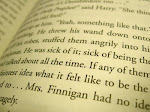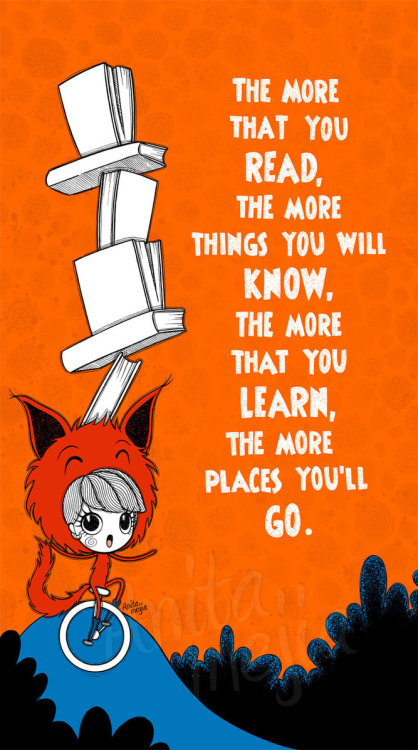
(WARNING: there are some spoilers in this post. If you don't want to read the spoilers, skip to the fifth paragraph.)
Imagine that you're a Native American kid. You were born with "water on the brain", and as a result, you look and even act a bit different from other people. For this, you're made fun of and called names by people on the reservation you live on- and funnily enough, every single one of those people is dirt-poor, just like you. Finally, you've decided you've had enough, and after an unfortunate incident that lands a teacher with an injury and you with a suspension from school, that same teacher opens your eyes to a world outside "the rez": white kids' school.
That's the set-up for a hilarious, semi-autobiographical account by Sherman Alexie called The Absolutely True Diary of a Part-Time Indian. It's part diary, part cartoon album, as the main character, Arnold aka Junior, is a budding cartoonist and doodles a LOT. (The drawings in this book are done by Ellen Forney.) It deals with a lot more than just Arnold going to school with white kids, though that's a huge part of it; it also touches on relations not just between races, but among people of a certain race. Also, it touches upon aspects of Alexie's life, such as going to an all-white school and being born with hydrocephalus (excess of cerebral spinal fluid in the skull).
Arnold's foray into a school outside the reservation not only sets off the kids already at that school, but it alienates him from many people within the rez, among them his best friend, Rowdy, the toughest kid Arnold knows. Much of the book deals with Arnold's desire to make up with Rowdy, as well as a brief rivalry between the two when both of them make their schools' varsity basketball teams. Meanwhile, Arnold makes tentative friends at his new school and gets a girlfriend, Penelope.
There's also a focus on death. A number of characters die in this book, including Arnold's older sister, Mary (nicknamed "Mary Runs Away"), his father's best friend, and his grandmother. Each separate incident prompts Arnold to think about how fragile life is, why people drink, and why the best people in the world have to die. Somewhat morose for kids, but appropriate, considering so many young people have attempted or committed suicide in the past year alone.
Even so, someone out there obviously thinks that no child out there can possibly bear witness or deal with alcoholism, poverty, racism, sex, not fitting in, or any type of death (whether suicide or otherwise). In April of 2010, the Stockton (Missouri) School Board
removed the book from the school's library after a parent complained of the content. The ALA asked the board to reconsider, but in September of that year, the Board upheld its decision and kept the book out.
In mid-October of that same year, Newcastle Middle School in Wyoming tried to use the book in its eighth-grade English curriculum, and the district allowed it under the condition that students not allowed to read it would bring a signed paper allowing them to read an alternate book, Tangerine by Edward Bloor. Two weeks after that decision was made and the news relayed to students, the book was banned outright.
Last, in Richland, Washington, during the month of June in 2011, the Richland School Board voted to prohibit the use of Part-Time Indian for all grade levels, subject to a pilot program involving ninth-grade English students. Soon after, the Board decided to remove it entirely, but reversed the decision a month later.
Of course, Sherman Alexie himself has received many positive reactions for his books and speeches from young people, many of whom have gone through the things he describes in his books. This just goes to show that no matter what books, or how many of them, a group tries to get rid of, these things happen. Depression happens. Sex happens. Death happens, every day, and there's nothing a person can do to stop it. So why try to hide it? It makes no sense to me.
Either way, this is a wonderful book, completely accessible to younger people, and I hope more people read it.









